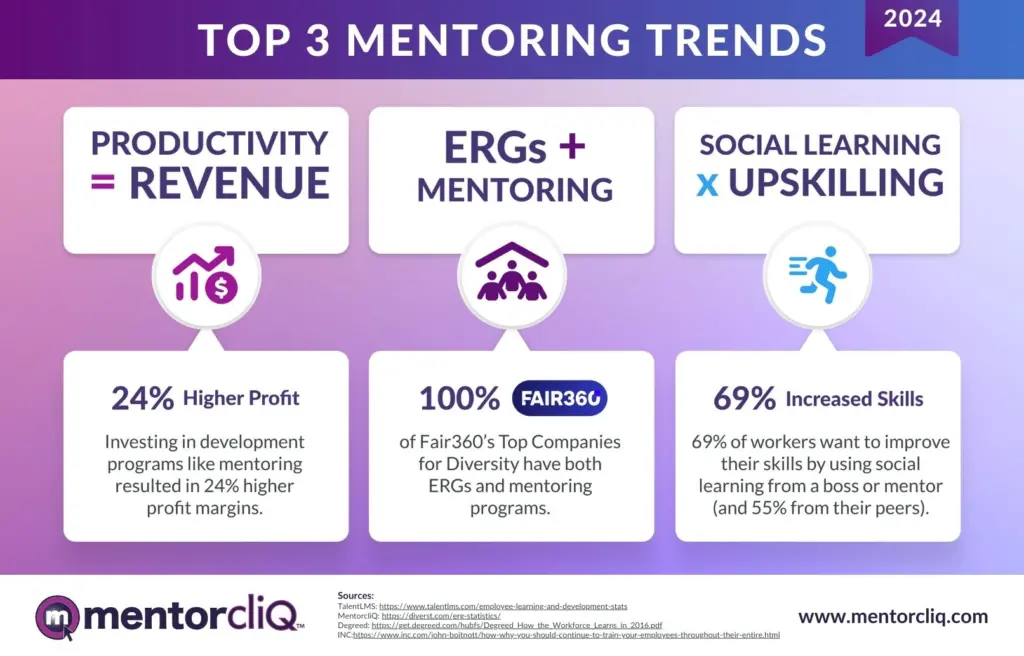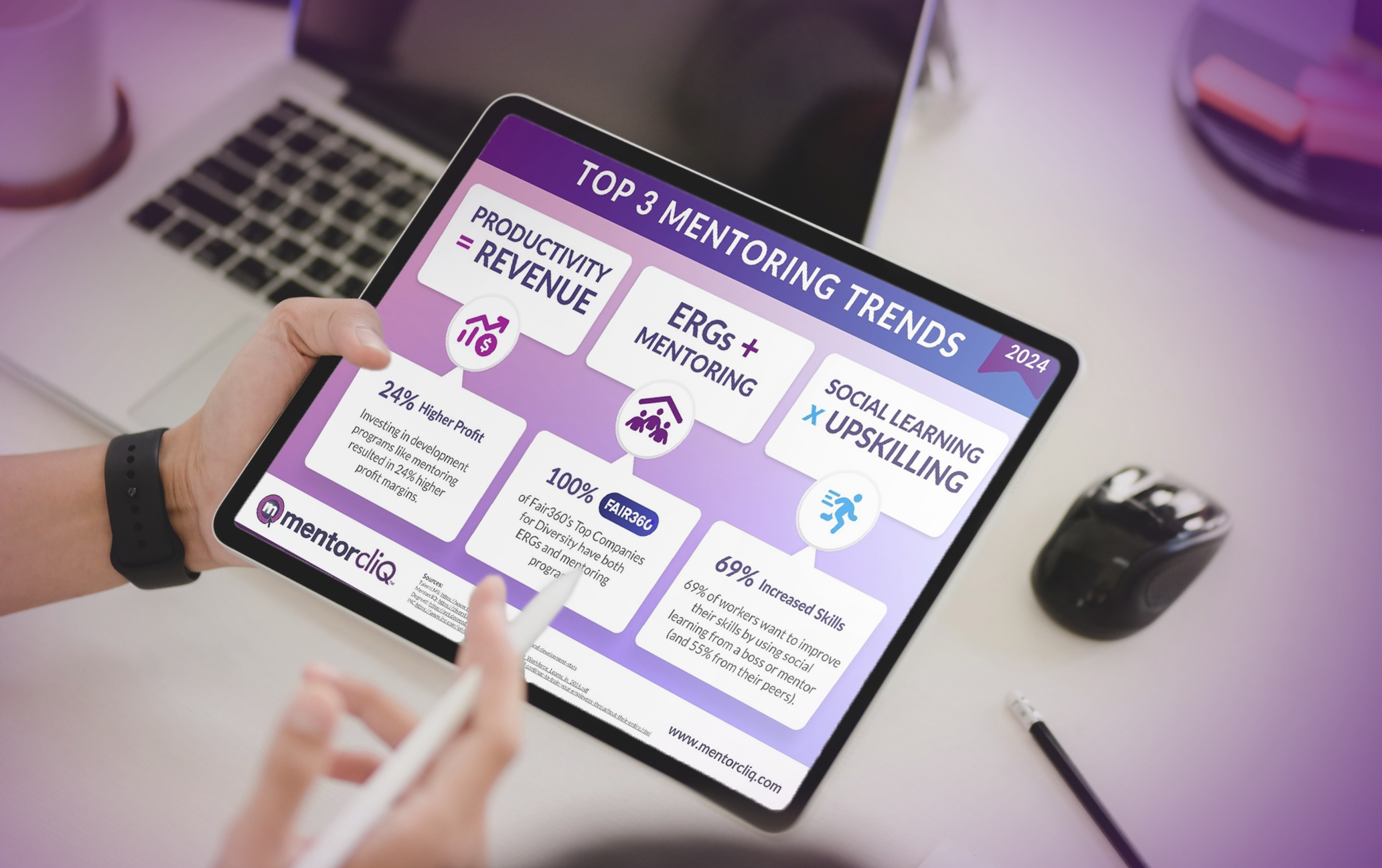The Great Gloom has followed last year’s Great Resignation and brought with it productivity declines, DEI strategy changes, and an increased need for upskilled and reskilled workers. While economic uncertainty has become a bit less uncertain and employee retention has stabilized, HR and Talent Development leaders are more concerned than ever about lower levels of engagement, decreased job satisfaction, and a skills gap that won’t stop growing.
Three mentoring trends have emerged that will play an ever-increasing role in helping leaders address these needs. These trends include:
- Boosting Productivity with Mentoring
- ERGs + Mentoring Turn DEI into ROI
- Social Learning Will Help Upskill Employees
Uncertainty took hold in the latter half of 2023 and continues to hang over the heads of company talent leaders into this year. Uncertainty over whether employees will shift from their collective slump and increase productivity. Uncertainty over how to proceed with the changing DEI landscape. Uncertainty over how to effectively upskill and reskill workers in a way that closes a nagging skills gap.
All of those uncertainties are being met with one thing that’s increasingly certain: Employees want to connect. And in that connection, personal and professional development happens. Visibility happens. Lives are changed. And ultimately, all of those goals (productivity, DEI, and skill development) are encountered and addressed in the most organic and human way possible.

At MentorcliQ, we believe mentoring can help solve many of the most pressing employee productivity, DEI, and upskilling needs that are a thorn in the sides of leaders and their teams right now. We also believe that none of these concerns is an island unto itself; each is intricately connected in a way that means a strategic, structured approach to mentoring will impact all three of these development and engagement needs.
Top 3 Mentoring Trends to Watch in 2024
Mentoring Trend #1: Productivity = Revenue
In the face of evolving workplace dynamics, organizations are grappling with the challenge of disengaged employees, which significantly hampers productivity. To counter this, many companies are leveraging their internal networks to increase productivity. The spotlight is on mentoring as a pivotal strategy to rekindle enthusiasm and drive among the workforce, promising a path to revitalized productivity and organizational success.
In one study, ATD found that investment in employee development programs produced a 24% increase in profits for companies. Meanwhile, MentorcliQ found that companies with mentoring programs were 2X as profitable as those without them. Mentoring gives workers the type of engagement and development they need to get more enjoyment out of their work and the skills they need to be better and more confident at what they do.
Mentoring Trend #2: ERGs + Mentoring
Employee Resource Groups (ERGs) have long been one of the most ubiquitous engagement programs at medium and enterprise-level businesses. However, they’ve consistently been seen as “soft,” not because they are, but because they’re often unstructured and decentralized.
As executives begin to ask for more data to prove out the value of DEI programs like ERGs, more companies are turning to mentoring as a way to make these groups more visibly connected to measurable, business-impacting outcomes. ESPN is just one example among many of companies that are now using tethering their mentoring programs to their ERGs in a way that gives employees and executives more from these programs.
Mentoring Trend #3: Social Learning + Upskilling
Have we be doing employee development all wrong? When people want to learn at work, 69% of us turn to either a boss or a mentor first before we turn anywhere else. And the vast majority of us will shun corporate learning programs and learning management systems (LMS) as much as possible and only turn to these if we absolutely have to (usually kicking and screaming along the way).
The skills gap isn’t changing, but many companies’ approach to closing it is. Talent Development leaders are starting to realize the strength of social learning engagements like mentoring and the power of their own internal networks. Breaking down silos and allowing people to learn from each other with a structured approach combines the best of both worlds — and produces better outcomes for employee development, DEI, and productivity.
Get Ahead of 2024 Mentoring Trends
Taking note of trends in employee engagement is important. Taking action, however, is far more important. Employees may stay put during tough economic times out of uncertainty. But a lack of engagement may sour them on your organization and push them to quit at the first, best opportunity.
Be the trendsetter. Learn more about how mentoring can increase productivity, bring measurable results to ERGs, and help add the human touch back to upskilling after you…




